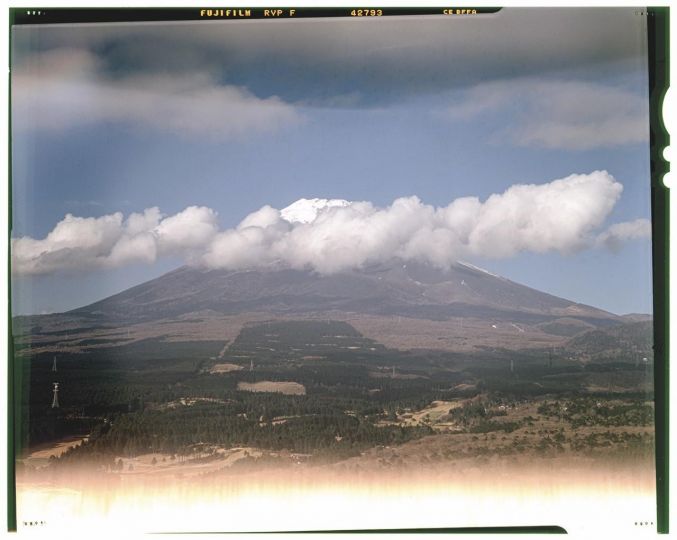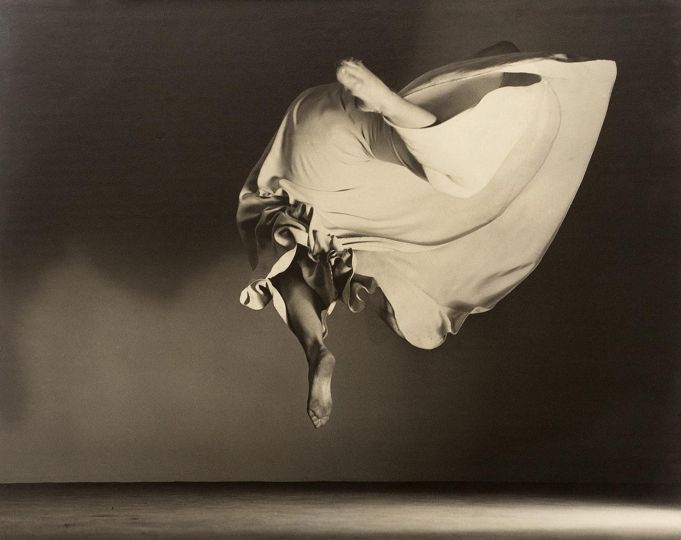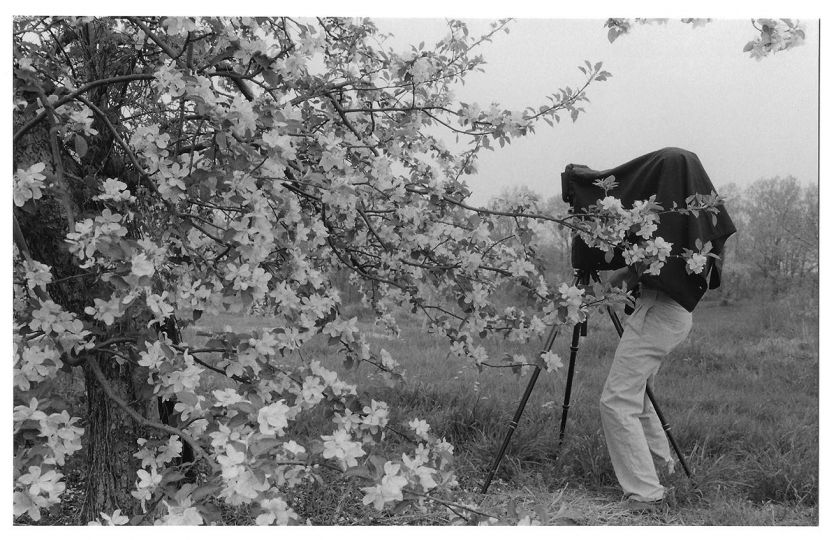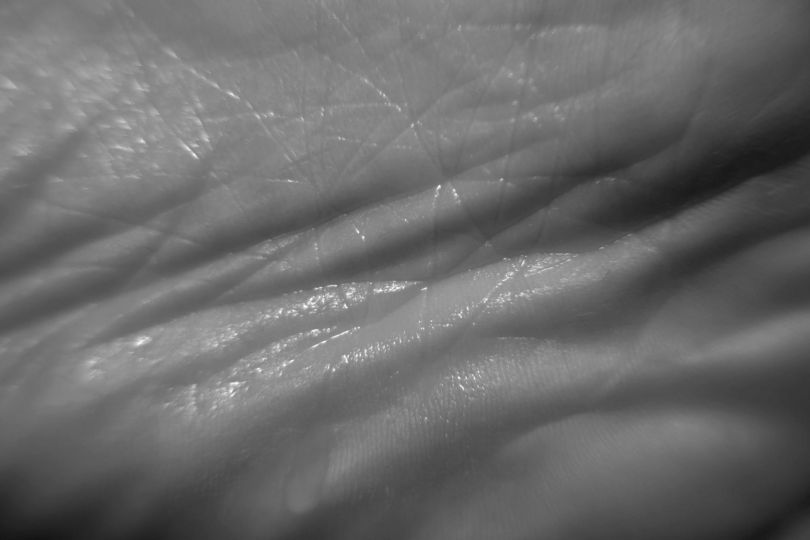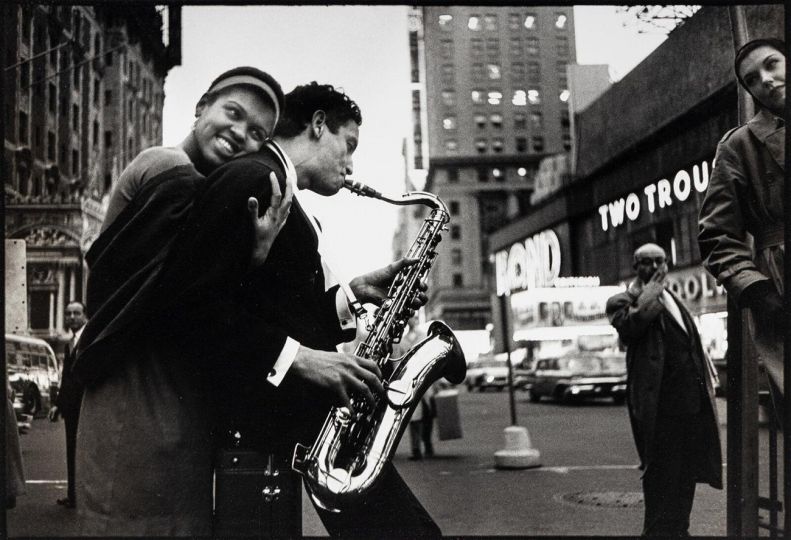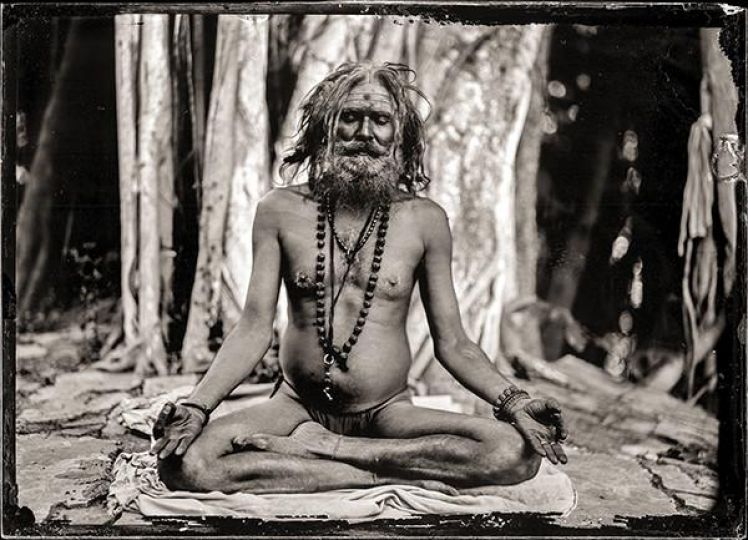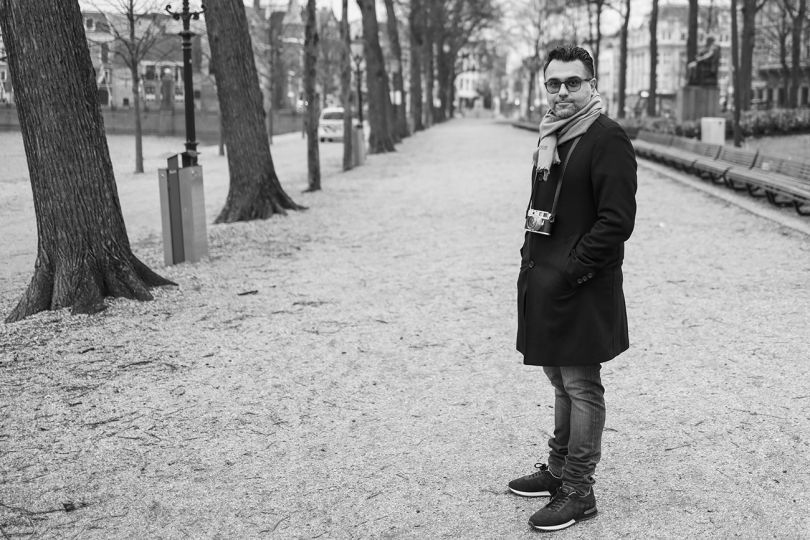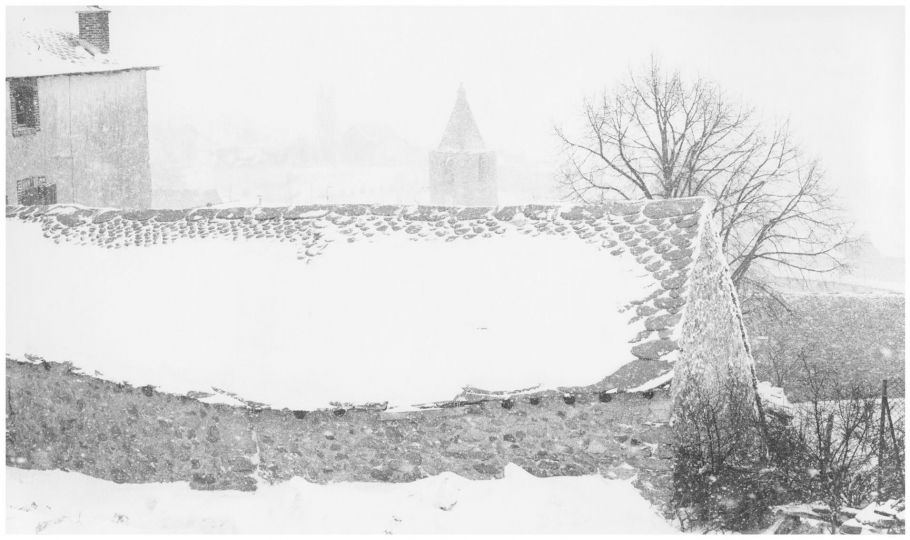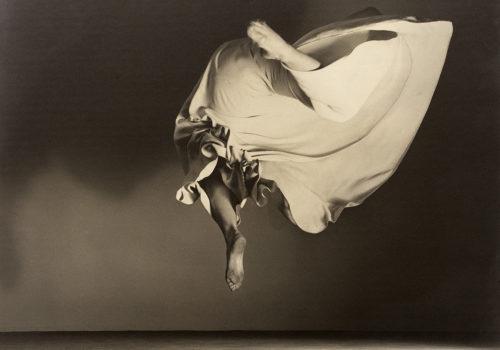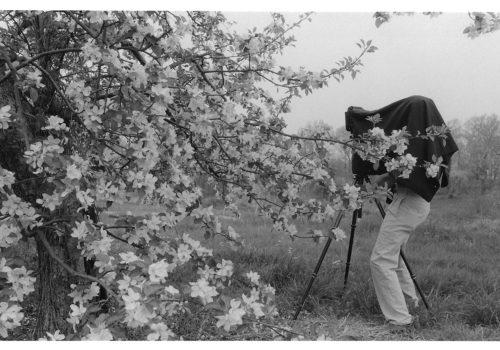Ymy Nigris‘ book, Chaque jour est un bon jour, has been published by Corridor Elephant. Its author describes it this way:
“Every other Monday of the month, I visit him, who has become a friend of sorts. It’s 5:00 a.m. when I wake up. I had packed my bag the day before, but I still check that I have all my gear. I drink a glass of water. When I leave my house, it’s 5:20 a.m. I first take the metro, then a train, a second, a third, then a bus… There’s still a good half-hour walking before I reach my destination. Here I am in a parking lot, facing steps carved into the mountain. It’s 9:00 a.m., and I finally see the footbridge from which I’m taking my photograph. Now I set up my tripod, place my camera on it, dive under the veil and begin to focus. Here I am again, ready to take a portrait of Mount Fuji.
Mount Fuji seems immutable. However, it shrinks every year. This change is not visible to the naked eye. Observing the imperceptible was the origin of this project. For more than two years, following the rhythm of an ancient Sino-Japanese calendar, I photographed this Shinto deity with a view camera. Initially inspired by landscape observatories, this regular and formal journey has become a ritual. This work is a reflection on the photographic medium and its history, an expression of Zen spirituality, and an ecological investigation into our relationship with the environment. In line with the concept of wabi-sabi, this volcano, which has been depicted and romanticized many times, is presented with sobriety and simplicity. A large camera is used for this process. Its potential for perfection, juxtaposed with the possibility of the unexpected, compels me to use it. The viewer is invited, through this study of the landscape, to contemplate the seasons and the ephemeral.” – Ymy Nigris

